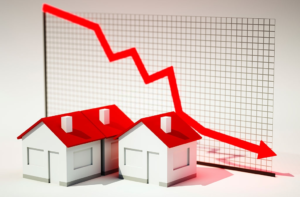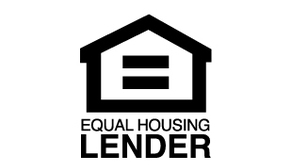The novel coronavirus (COVID-19) pandemic is taking the stock market on a wild ride and causing industries like travel to bleed red ink. But the recent coronavirus-induced economic uncertainty benefits some groups of people, including present and prospective homeowners.
On March 4, Freddie Mac, the government-owned corporation that buys mortgages and packages them into mortgage-backed securities, reported that the average 30-year fixed-rate mortgage rate was 3.29%. That was a record low for the last 50 years and was down more than one percentage point from the same time the previous year. A week later, Freddie Mac reported that the 30-year fixed-rate had edged up slightly to 3.36%, but that’s still almost a percentage point below the rates from mid-March of 2019.
These historically low-interest rates benefit people who want to refinance, too. According to Mortgage Bankers Association data, refinance applications surged 78.6% in the week ending March 6 from the week prior. That’s a 479% increase over the same week in 2019.
Why Is The Coronavirus Affecting Your Mortgage Rates?
Since the beginning of the year, mortgage rates have nosedived in response to coronavirus-triggered market movements. As a rule, U.S. mortgage rates fluctuate based on long-term bond rates, especially 10-year Treasury notes. In early March, 10-year Treasury notes dropped below 1% for the first time ever after the Federal Reserve announced a cut in its benchmark interest rate.
The Federal Reserve cut was sparked by—you guessed it—concerns about the coronavirus’ economic fallout. The stock market was also influenced by coronavirus aftereffects and has dealt with investor’s crippling blows. To escape from the wayward stock market, investors poured money into Treasury notes, causing the yield on 10-year notes to tumble.
As things stand now, the 10-year Treasury note is continuing its downward drift, suggesting that mortgage rates also have some room to move lower. Says Rick Sharga, CEO of financial-services consulting firm CJ Patrick Company: “I wouldn’t be surprised to see 30-year loans with 3.0% rates before things settle back down.”
The Impact On Potential Homebuyers
Mortgage rates have trended downward in 2020 and will probably continue on this path through the near future. Explains Zillow economist Matthew Speakman: “Much remains unknown with this virus and its potential impact on human life and economic activity. COVID-19 is here, and it will continue to be the main driver of mortgage rate movements in the coming weeks.”
Even though the coronavirus crisis is driving down daily interest rates, other factors are also at play. For one, the inventory of homes on the market has hit an all-time low while demand for those houses—thanks in part to coronavirus-induced low rates—is high.
The low inventory is mostly due to the recession-driven drop in home construction in recent years. Investors snapped up low-cost properties to convert to rentals, which further tightened supply. Despite an increase in home-building activity since last summer, it’s still not enough to satisfy pent-up demand.
Additional Read: 10 Tips For Potential Homebuyers
Another factor to consider is that mortgage bankers can’t keep the lights on if they lend money at low rock-bottom rates indefinitely. It is highly unusual for banks to loan 30-year mortgages at 2.99%. It’s also important to remember that lenders know the demand for mortgages is strong without having to drop interest rates. Lenders are so swamped with applications for new and refinanced mortgages that they’re already starting to raise interest rates slightly. Don’t worry just yet, though—rates are still low overall.
Overall, you’ll get a good deal on a mortgage right now. But you need to find a house you like and can afford, and your credit score and other considerations have to be up to par.
Also, are you anxious about your financial security in the light of coronavirus? If so, you may need to leave potential savings on the table.
How Will Coronavirus Affect A Homeowner’s Mortgage Rate?
If you already own a house, the decline in interest rates spurred on by COVID-19 presents an enticing opportunity. Along with millions of homeowners across the US, you stand to save thousands of dollars in interest by refinancing. According to real-estate data firm Black Knight, 44.7 million homeowners have $6.2 trillion in home equity. They could unlock this equity through a cash-out refinance at today’s historically low rates.
If you want to cash out of your house by moving, now might be a good time to explore your options. Roanoke, Virginia Realtor Katy Cookston says, “You’re going to get multiple offers if [your house is] priced right.” She adds, “It’s a phenomenal time to sell; as long as [your house is] priced appropriately, [it’s] going to move off the shelf pretty quickly.”
Refinances are booming, as is the demand for homes. Supply isn’t keeping up with the demand, though. So lenders don’t need to cut rates to prod Americans into applying for new home loans or refinancing old ones.
If you’re thinking about refinancing, decide how long you plan to remain in your current home and run the numbers. Then, if the numbers work out in your favor, lock in your rates now. You should apply for refinancing as soon as possible because, coronavirus notwithstanding, there may be a slight uptick in interest rates.
You see, lenders let go of employees in 2018-2019 because they expected higher rates, which in turn would cause lower demand for loans. Therefore, lenders entered 2020 with decreased capacity. Since lenders don’t have enough staff to handle the onslaught of applications, it’s taking a while to close loans. To give themselves a chance to work through the applications they’ve already received, major lenders are turning to the primary weapon at their disposal: rate increases.
But if you haven’t locked in your refinance rate yet, don’t get alarmed. The Mortgage Bankers Association forecasts $1.2 trillion in refinances this year, double its previous estimate. This would be the largest volume of refinances since 2012. So refinancing interest rates will probably remain low for the near future.
Does Coronavirus Affect Home Equity Loans?
Although mortgage rates have plummeted because of the COVID-19 economic malaise, they’ve crept up a bit because of other market forces. One exception to this trend, however, could be home equity lines of credit, otherwise known as HELOCs. These adjustable-rate loans are based on the prime rate. Therefore, HELOCs are set to see a drop in interest rates since the prime rate virtually mirrors the Federal Reserve’s benchmark federal funds rate.
The Federal Reserve dropped its benchmark funds rate in response to coronavirus. Therefore, lower HELOC rates are also directly tied to the coronavirus impact.
“HELOCs have been slowly falling in popularity, and over time the amount of HELOC debt has been gradually falling as people pay down their debts, and fewer people take up the slack by borrowing them,” comments Holden Lewis, mortgage and real estate expert at NerdWallet. “This seems time for that trend to possibly reverse. The rates on HELOCs are going to be tempting, especially for people who want to fix up their homes.”
Are These Mortgage-Rate Changes Long-Term?
There’s no telling how long COVID-19-influenced low-interest rates will last. Those who have been considering taking out new mortgage loans or refinancing shouldn’t be tardy to the party since lower rates in the days ahead aren’t guaranteed.
The coronavirus pandemic is causing worldwide pandemonium. It’s also unlocking lower mortgage rates for present and future homeowners, though.
Seek An Expert Opinion
So is now a good time to buy a house and take on a new mortgage? All things being equal if you find a home you like and can afford, seriously consider it. Interest rates are rock-bottom, and there’s no guarantee they’ll stay there.
What about refinancing your house—is now a good time for that? Again, as long as the monetary bottom line works out for you, get that done sooner rather than later. Rates on home equity lines of credit (HELOCs) are also decreasing, so you may want to consider those, too.
Sparked by coronavirus fears, mortgage interest rates have plummeted to historic lows. If you latch onto the savings and opportunities low mortgage rates present, your financial health will benefit.
A and N Mortgage Services Inc, a mortgage banker in Chicago, IL provides you with high-quality home loan programs, including FHA home loans, tailored to fit your unique situation with some of the most competitive rates in the nation. Whether you are a first-time homebuyer, relocating to a new job, or buying an investment property, our expert team will help you use your new mortgage as a smart financial tool.









